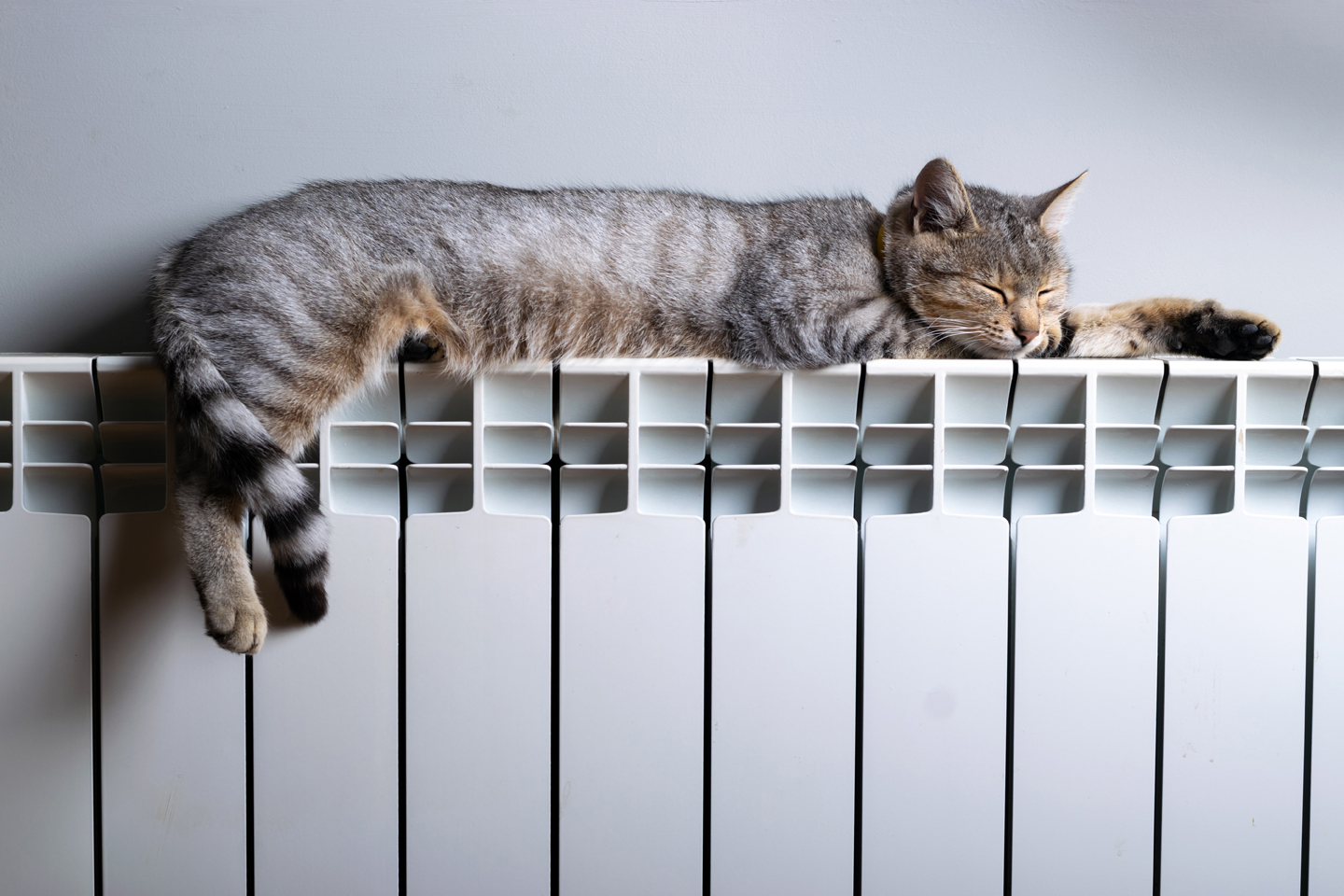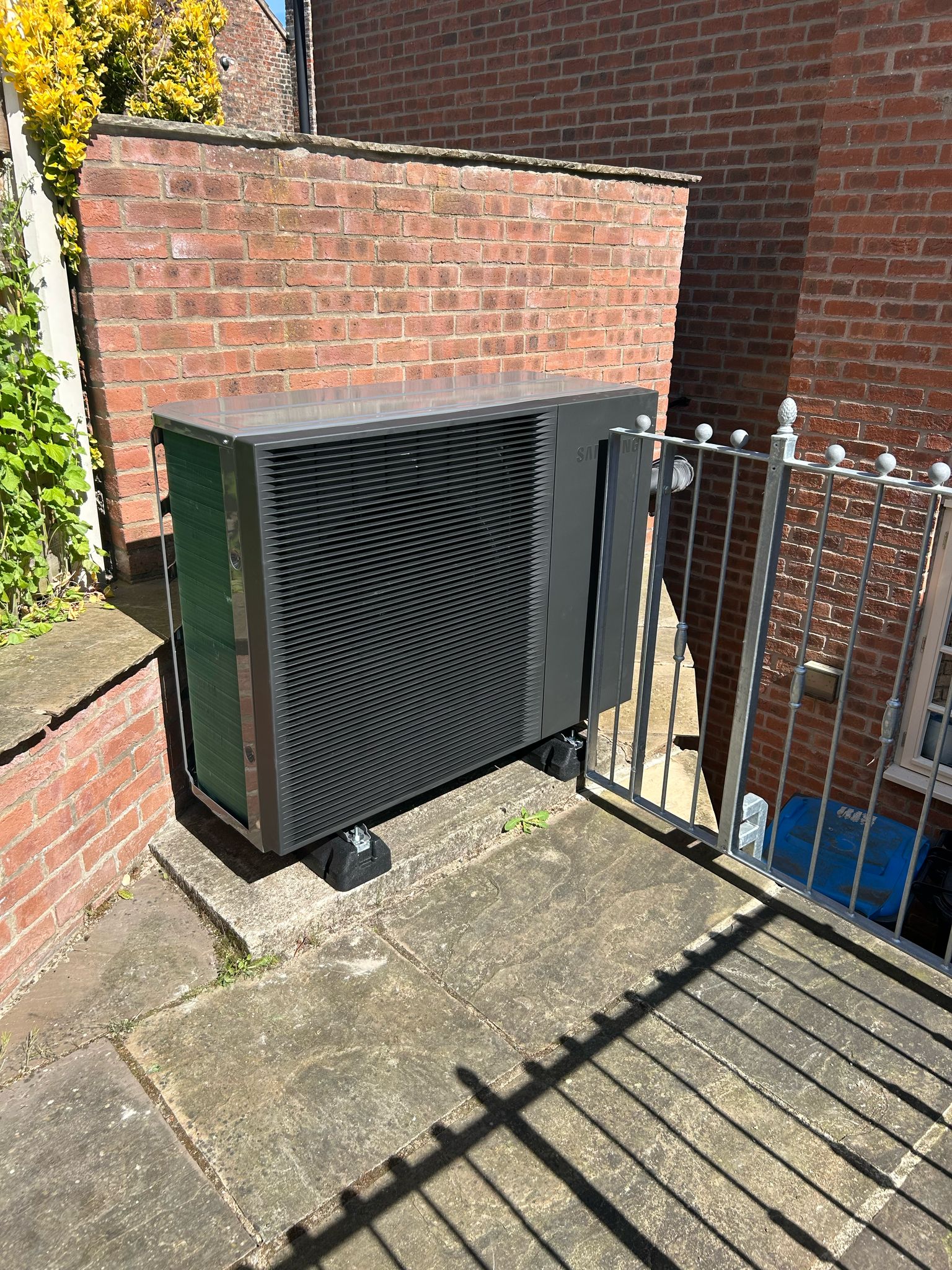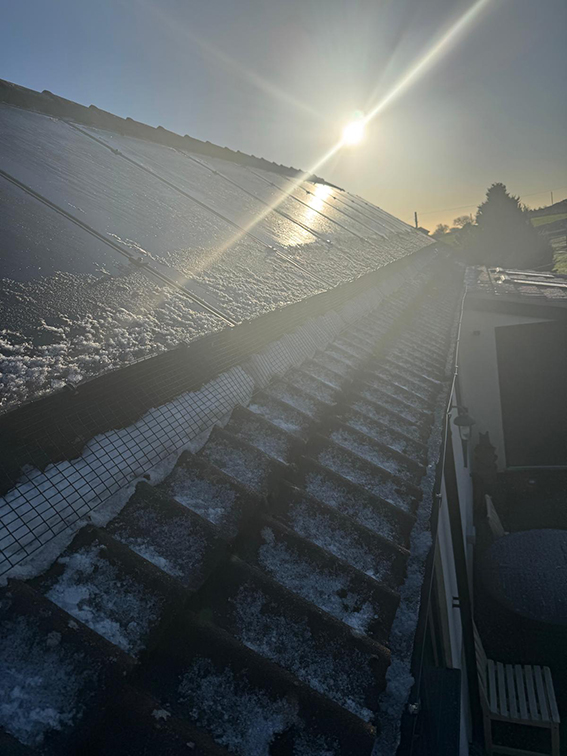
Can You Use a Heat Pump with Radiators?
You can absolutely use an air source heat pump with radiators.
In fact, that’s exactly what they are designed for … and they can replace your traditional gas or oil boiler.
Understanding How Heat Pumps Work
Heat pumps work by extracting heat from an external source and using it to increase the temperature of coolant or refrigerant.
That heat source can be either water, the ground or the air outside your home.
The most popular version of the heat pump, and the one used in most domestic settings, is the ‘air source’.
Air source heat pumps, or any heat pumps, work like a backwards air conditioning unit.
The heat is drawn from a source, in this case by a fan from the outside air.
Now, you may be thinking ‘what heat? This is the UK!’ - but, there is heat in that there air, even when we can’t feel it.
The outside air is drawn over pipes containing a refrigerant, this refrigerant has a much lower boiling point than water, so it starts to heat up.
The refrigerant is then passed through much smaller pipes, which puts it under pressure and heats it up even more.
Can Heat Pumps Replace Traditional Boilers?
So, as you can see by the explanation of how they work, an air source heat pump is a perfect replacement for your traditional gas, oil or electric boiler – because they do exactly the same thing.
But, and it can be quite a big but, while they do the same thing they don't do it in the same way.
Heat pumps work by maintaining a steady heat. They can’t go from freezing to 20 degrees in an instant like a traditional boiler can.
They are a bit like an air conditioning unit in that they are designed to maintain a consistent, steady heat throughout your home.
So, while heat pumps can replace traditional boilers, you do need to think about the way you use your heating.
What Types of Radiators Are Compatible with Heat Pumps?
As stated previously, heat pumps are compatible with radiators, but they may not necessarily work with the radiators you have in your home right now.
Traditional radiators, say ones used with a gas boiler, have a high flow temperature of between 65 and 70°C.
Trying to function at this level would really lower the efficiency of your heat pump system.
Having a high temperature in your radiator means it will heat up quickly, but you will be losing a huge amount of that heat every time you turn the system on.
After all, you only want your home to be at around 22 degrees, even in the winter.
So, how do you keep the room temperature up with a system that is only functioning at around 40 – 55 degrees.
Radiators need to deliver a flow temperature of up to 55ºC to be compatible with an air source heat pump system.
As flow temperature decreases, the surface area you need to heat a room increases so you'll need slightly over-sized radiators!
The bigger the surface area of the radiator, the more of the air in the room it will heat.
So, much bigger, much more conductive radiators are the way forward.
What is the best way to heat your home with a heat pump?
Underfloor heating is by far the best way to take advantage of an air source heat pump.
Very popular in the 60s and 70s, underfloor heating got a bit of a bad reputation initially.
It was generally hard to fix when things went wrong as it was just concreted into the floor when the house was built.
These days, however, the systems are much more thought out and include easy ways to replace damaged pipes and other necessary hardware.
Modern new build are starting to include under floor heating in their downstairs areas and even upstairs in the customer has made the request to have it installed.
Underfloor heating also improves you EPC rating, and that can increase the value of your home.
Obviously, retro fitting underfloor heating can really bump up the cost of your air source heat pump installation, so you need to think very carefully about where you want that or just new radiators.
Do Heat Pumps Work with Other Heaters?
Yep, as we said, you should see a heat pump as a greener replacement for your oil or gas boiler.
So, heated towel rails, underfloor heating, radiators and even the hot water for your shower can all be serviced by your heat pump system.
Ware Heat Pumps More Expensive to Run?
This is a yes and no answer, sorry.
First the ‘Yes’.
Heat pumps do cost more to run, they run on electricity, which is more expensive than gas, so the actual powering of the fan and other gubbins is going to cost more than it would with a gas boiler.
However, and this is the ‘No’, they ate over 4 times more efficient than a gas boiler.
This means for every kW of energy you use, you’ll get the equivalent of 4 kW back in heat.
What that means in a practical sense is; an air source heat pump costs about the same, over all, as a gas system does at current prices.
The added advantage is that air source heat pumps are much safer and, of course, much greener.


